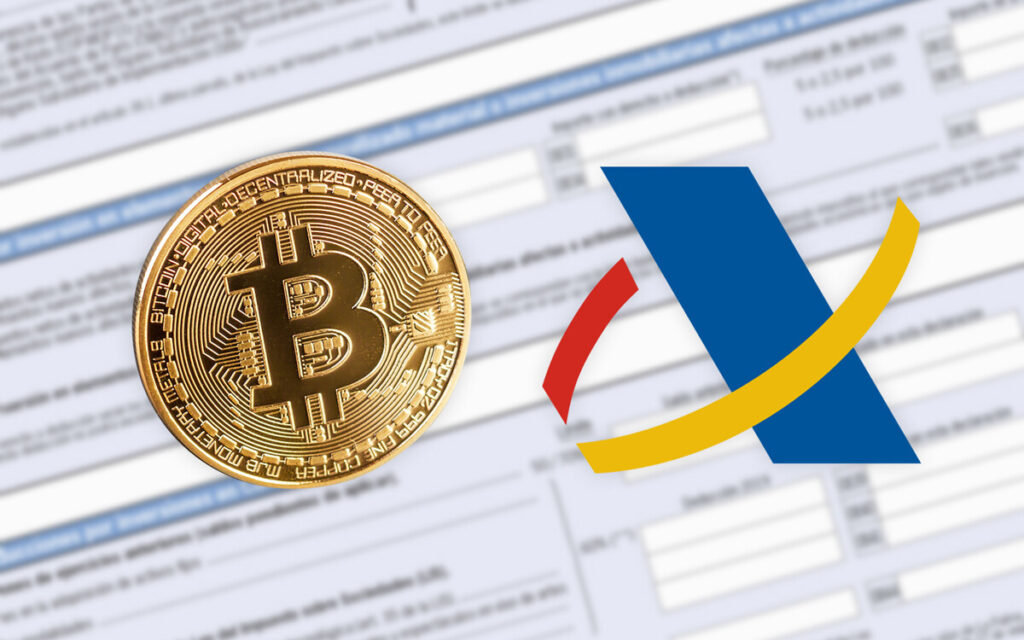According to sources familiar with the matter, the postponement is due both to the frenetic activity of the last few months in tax matters and to calendar reasons.
The Ministry of Finance has decided to delay until 2024 the new reporting obligations on virtual currencies, a declaration that will affect balances and activities produced in 2023. All of this, explain sources from the department headed by María Jesús Montero, “without prejudice to the information already required on cryptocurrencies in the current tax return forms”, such as that relating to personal income tax (IRPF).

“The publication of the ministerial orders whose approval depends on the publication of the Regulation for the development of Law 11/2021, of 9 July, which is currently being processed, is still pending”, these sources explain. Therefore, in view of the regulatory timetable, the new reporting obligations on cryptocurrencies “will not be enforceable until 2024, with respect to 2023”.
The forms affected by this extension are 172, 173 and 721, which will be used respectively to declare balances and transactions in Spain and the holding of cryptoassets abroad. They are the method chosen by the Tax Agency to monitor all agents involved in the cryptocurrency chain: creators, exchange agencies, virtual wallets, exchanges and wallets, key custody services, suppliers and other companies and operators in the sector.
According to sources familiar with the matter, the delay is due both to the frenetic activity of the last few months in tax matters and to timing reasons after the Council of State, when evaluating the regulation, requested a report from the Data Protection Agency to analyse the impact of the models. For the time being, “it does not seem that the Data Protection Agency is going to ask for changes”. The Council of State could request changes, although this is not expected to happen for the time being.
Other experts consulted see more reasons. Emilio Pérez Pombo, tax advisor and economist, acknowledges that the Treasury is “overwhelmed” by all the activity of the last few months. However, he also believes that the ministry has realised that the models drafted “demanded information that made no sense or that was even impossible for operators to know”. Information should be requested, “but with a much lighter and more reasonable level of detail, in line with the nature of cryptoassets”, he adds.
If it remains as it is drafted, the draft “requires a great deal of information”, says Raquel Jurado, a tax advisor at the General Council of Economists specialising in these assets. For this reason, she adds, it is preferable for everything to be published in time for next year.
Models
The Treasury already presented its proposals for the aforementioned models on the public hearing portal in June. These drafts demanded a considerable amount of information from taxpayers with the aim of “improving the fiscal control of the taxable events that may arise” from the holding and operations with cryptocurrencies. However, months went by and the definitive publication did not appear in the Official State Gazette (BOE). The Treasury confirms that it will not appear in tomorrow’s BOE, the last of the year, so the obligations will be delayed for at least another year.
Forms 172 and 173 will be used to declare balances and transactions with cryptocurrencies to the Treasury. Those companies that are tax resident and that are participating in the sector by creating coins, providing safeguard services for cryptocurrency keys or services that connect with another activity will be obliged to file the declaration. Also, those companies that are exchange or digital money agencies or those that, on behalf of third-party companies or individuals, hold, store or transfer virtual currencies. In short, those individuals or companies that are resident in Spain and that participate in the sector, regardless of where the services are provided or where the virtual currencies or their holders are located.
Form 721, inspired by Form 720 for the declaration of assets abroad, obliges taxpayers to declare the virtual currencies they hold outside Spain. It will affect individuals who operate with cryptocurrencies beyond the border, but also beneficiaries, authorised persons and authorised agents.
The declarants, broadly speaking, will have to leave a record of their tax identification, information that will also be extended to the declarant. Among other points, it will also be necessary to report the public key or address with which the declarant’s electronic wallet is identified, the type of virtual currency, the number of units at the beginning and end of the specific period, the value of the cryptoassets and the balance at 31 December included in the public key.
Income
This extension, however, will not affect personal income tax returns for cryptocurrencies, which remain in force. The 2021 income tax campaign has already brought to light specific data on the amounts that cryptocurrencies move in Spain, as well as their presence in the market. According to data from the Tax Agency, almost 35,200 tax returns included gains derived from operations with virtual currencies, amounting to more than 759 million euros. In parallel, in wealth tax, a total of 1,275 declarants incorporated €911.9 million as the balance of their cryptocurrency portfolios at year-end.
Source: cincodias.elpais.com
Disclaimer: The information set out herein should not be taken as financial advice or investment recommendations. All investments and trading involve risk and it is the responsibility of each individual to do their due diligence before making any investment decision.




